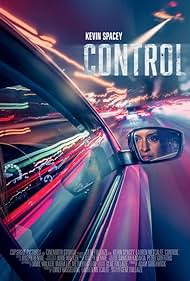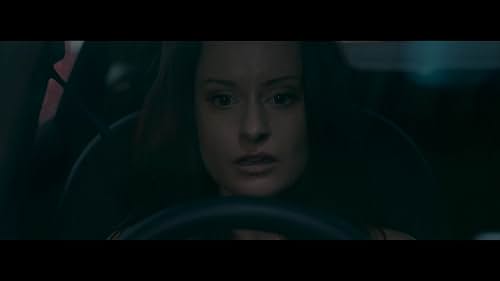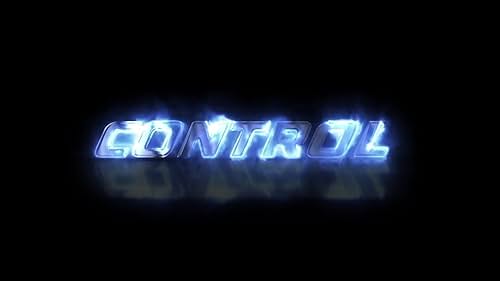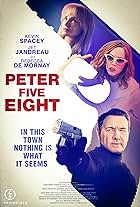British Home Secretary Stella Summons is engaging in a secret affair with the Prime Minister. While she is driving his young daughter home, the two are taken hostage as Stella's self-driving... Read allBritish Home Secretary Stella Summons is engaging in a secret affair with the Prime Minister. While she is driving his young daughter home, the two are taken hostage as Stella's self-driving car is hijacked, rampaging through London.British Home Secretary Stella Summons is engaging in a secret affair with the Prime Minister. While she is driving his young daughter home, the two are taken hostage as Stella's self-driving car is hijacked, rampaging through London.
- Awards
- 9 wins & 3 nominations
Photos
Joshua Frater-Loughlin
- Daniel
- (as Joshua Frater Loughlin)
Alexandra K Hansler
- Susan
- (as Alexandra Hansler)
Julian McDowell
- Official
- (as Julian Howard McDowell)
- Director
- Writer
- All cast & crew
- Production, box office & more at IMDbPro
Storyline
Did you know
- TriviaThe custom exclusive hero-car license plate number 821 TBG was only provided to the production after post production was complete, and several months after filming, requiring additional VFX shots to replace the original plate number.
- GoofsThe car make, color, and model changes from the movie's beginning to the end scenes.
Featured review
An ambitious movie that lacks the means to fulfill its aspirations
Bookended by a couple of location shoots that must have accounted for more than half of the film's budget, this is the latest entry in a genre that includes Buried (2010) and Phone Booth (2002), in which a victim trapped in a confined space is taunted by a moralising voice on the end of a phone line
The twist here is that the immobile victim is trapped inside a moving (self-driving) vehicle, turning this into a sort of schlocky, genre variation on Steven Knight's brilliant Locke (2013), where Tom Hardy has to resolve his personal issues from behind the wheel of his BMW X5, with only his bluetooth connection to help
Interestingly, all four films revolve around marital infidelity, with the confined circumstances of the protagonists forcing them to confront the consequences of their actions
The difference between Control and the other examples cited above is the ingenious ways the other movies find to complicate and escalate the bind in which their characters find themselves
The scenario and the antagonist's motivations established within the first ten-to-fifteen minutes of the movie and the parameters never really change, which means the only entertainment we have are the disembodied Spacey's long monologues about what a terrible person Metcalfe's protagonist is and how the powerful disregard or mistreat the ordinary people all around them at their peril
Metcalfe's character is the UK Home Secretary, which makes Spacey's overwrought and often unintentionally comic rhetoric feel very on the nose and student politics-y
The film *really* commits to its premise, never straying outwith the confines of the vehicle, meaning all the drama has to play out on Metcalfe's face
That's admirable, but a film with greater resources at its disposal would have been able to create a greater sense that this was happening inside a speeding vehicle, rather than in front of a green screen or back-projection of blurry London streets
And maybe a stunt or some fast-paced mayhem and destruction, to break up the sedentary monologues and create a sense of physical peril as well as moral hazard.
Bookended by a couple of location shoots that must have accounted for more than half of the film's budget, this is the latest entry in a genre that includes Buried (2010) and Phone Booth (2002), in which a victim trapped in a confined space is taunted by a moralising voice on the end of a phone line
The twist here is that the immobile victim is trapped inside a moving (self-driving) vehicle, turning this into a sort of schlocky, genre variation on Steven Knight's brilliant Locke (2013), where Tom Hardy has to resolve his personal issues from behind the wheel of his BMW X5, with only his bluetooth connection to help
Interestingly, all four films revolve around marital infidelity, with the confined circumstances of the protagonists forcing them to confront the consequences of their actions
The difference between Control and the other examples cited above is the ingenious ways the other movies find to complicate and escalate the bind in which their characters find themselves
The scenario and the antagonist's motivations established within the first ten-to-fifteen minutes of the movie and the parameters never really change, which means the only entertainment we have are the disembodied Spacey's long monologues about what a terrible person Metcalfe's protagonist is and how the powerful disregard or mistreat the ordinary people all around them at their peril
Metcalfe's character is the UK Home Secretary, which makes Spacey's overwrought and often unintentionally comic rhetoric feel very on the nose and student politics-y
The film *really* commits to its premise, never straying outwith the confines of the vehicle, meaning all the drama has to play out on Metcalfe's face
That's admirable, but a film with greater resources at its disposal would have been able to create a greater sense that this was happening inside a speeding vehicle, rather than in front of a green screen or back-projection of blurry London streets
And maybe a stunt or some fast-paced mayhem and destruction, to break up the sedentary monologues and create a sense of physical peril as well as moral hazard.
- Sigmund_Schadenfreude
- Aug 21, 2024
- Permalink
- How long is Control?Powered by Alexa
Details
- Release date
- Country of origin
- Official site
- Language
- Also known as
- Контроль
- Filming locations
- National Gallery, London, England, UK(Prime Minister's Speech Location)
- Production companies
- See more company credits at IMDbPro
- Runtime1 hour 24 minutes
- Color
- Sound mix
- Aspect ratio
- 2.35 : 1
Contribute to this page
Suggest an edit or add missing content





























